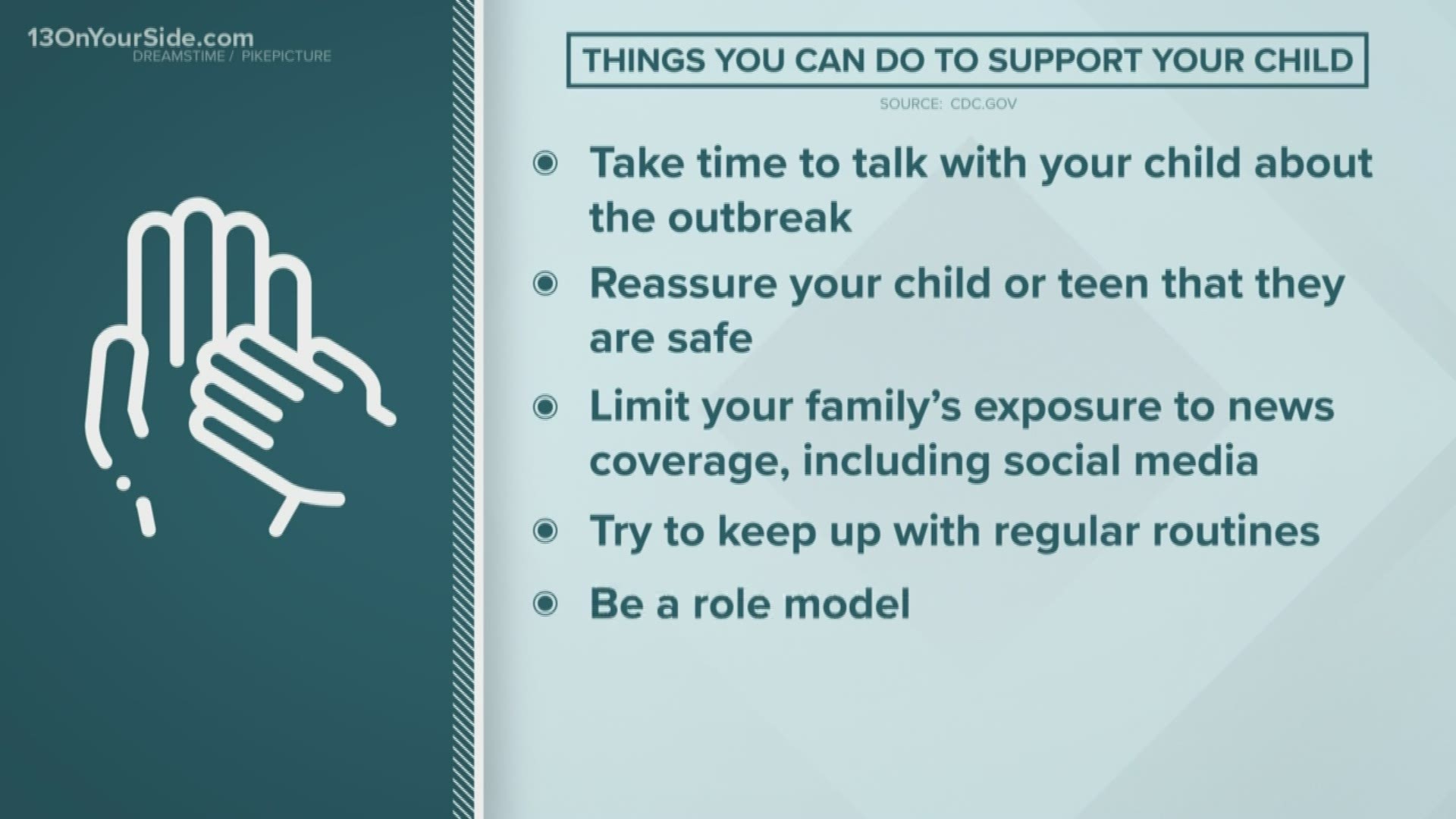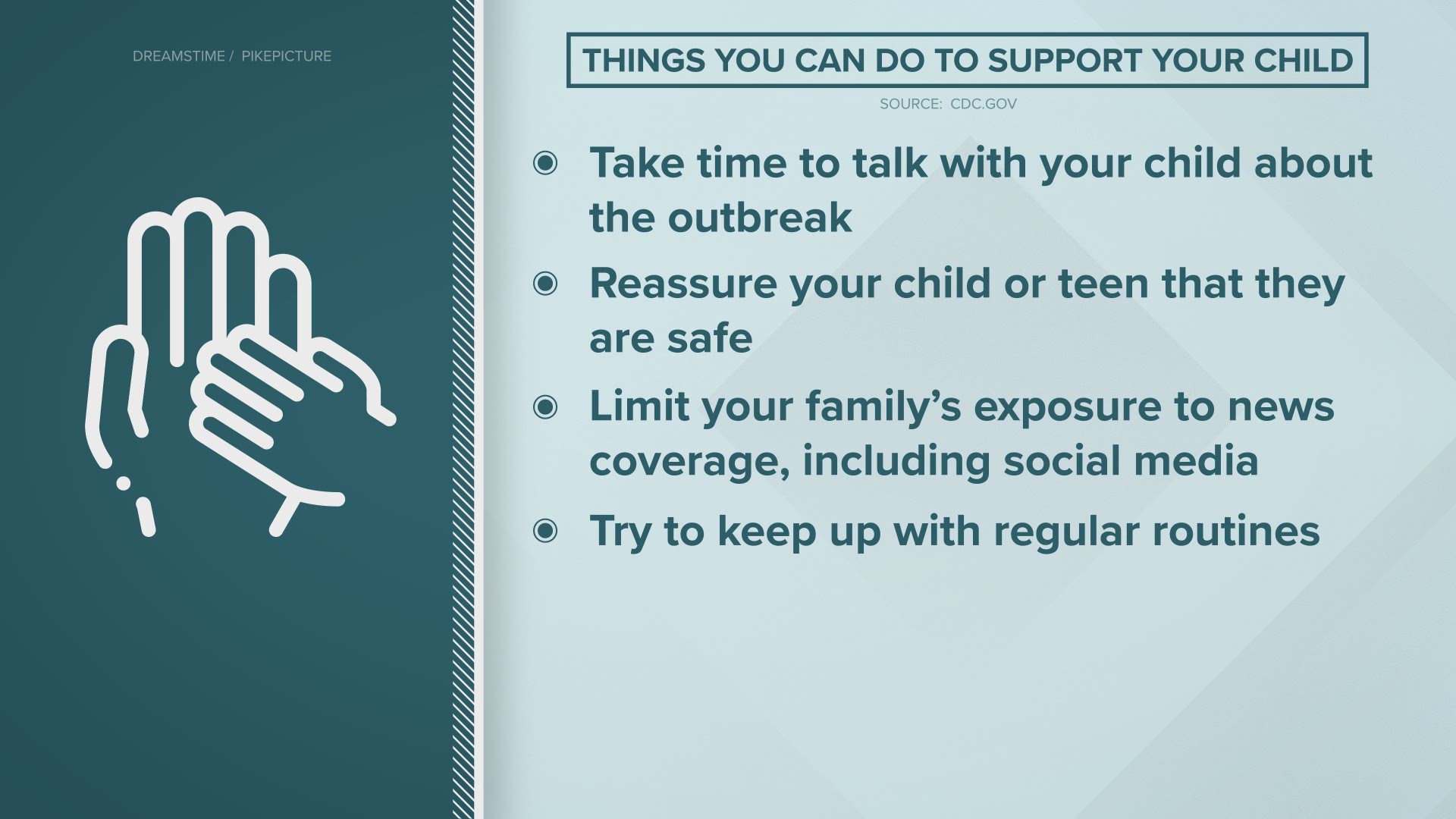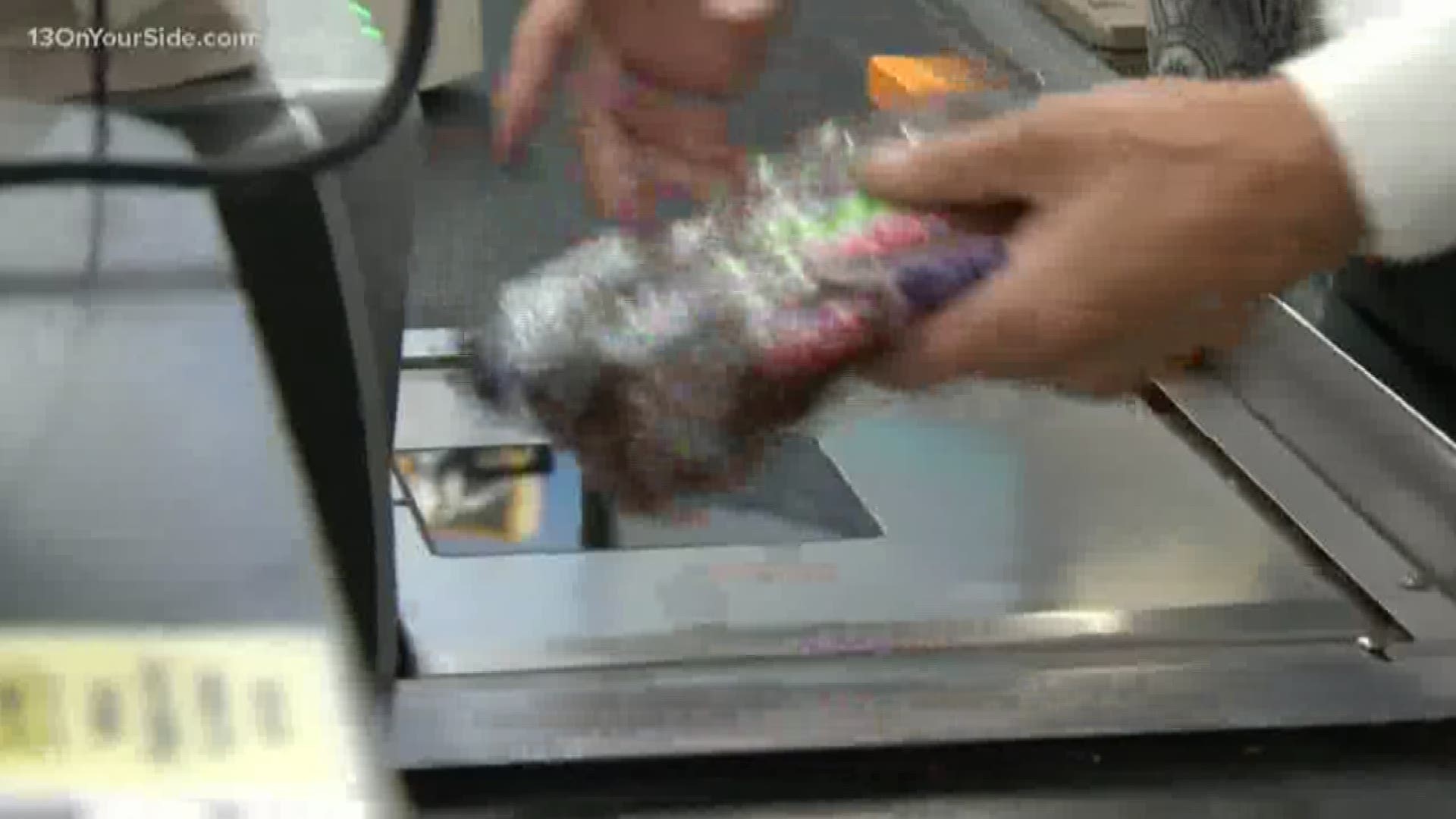GRAND RAPIDS CHARTER TOWNSHIP, Mich — The CDC says fear and anxiety about a disease can be overwhelming and cause strong emotions in adults and children. The center lists children and teens as populations who many respond more strongly to the stress of a crisis.
Adolescent psychology experts say it's important to keep communication open with youth to help children and teens cope with the stress.
"I think it’s important that children know that it’s safe to come to you and that they can ask any kind of question and that we don’t blow it off," Dr. Matthew Clark, a clinical psychologist at The Clark Institute said.
Clark, who specializes in child and adolescent psychotherapy, explains the lifestyle change during Michigan's stay-home order can be difficult for youth to cope with.
"Right now there’s been a disruption in their routine... and a lot of kids even though they say they don’t want to go to school, a lot of them now are saying 'oh I wish I was in school because I’m missing my friends I’m missing my teachers even,'" he said.
The CDC recommends taking time to talk with children about the COVID-19 outbreak.
Clark adds that when talking to younger children who may worry about the pandemic's implications, it's important to stick to facts and precautions, rather than emphasize panic.
"Kids are kind of listening all the time and picking up on things," he said.
He recommends limiting children and teens' exposure to the pandemic's coverage on the news, social media and in conversations. However, with new numbers every day surrounding COVID-19 cases and deaths being updated, he said it may be a good idea to go over the idea of death with young ones.
"If your family has some spiritual beliefs, talk about what you believe spiritually happens to someone when they die. Or if you believe that nothing really happens, talk to them, so death doesn’t seem such a scary terrible thing," he suggests.
While many teens may not need an explanation from their parents over what is happening, Clark said it's important for parents to empathize with the lifestyle change teens are undergoing.
"A lot of them are really depressed about missing prom, missing the last quarter of their sports that they were super excited about, just missing each other," he said. "Make sure that we're taking their grief and sadness seriously, because I think sometimes we as adults can 'poo poo' the fact that they were looking forward to the prom.
Clark recommends all parents ask their children how they are doing periodically, to show that they are open for communication and urges parents to practice their own forms of self care as well.
"(Parents) focus so much on the kids, but then they become depleted or stressed out, and then there’s nothing left for the kids," he said.
For more information on sharing COVID-19 facts with children, click here.
RELATED VIDEO:
More stories on 13 ON YOUR SIDE:
►Make it easy to keep up to date with more stories like this. Download the 13 ON YOUR SIDE app now.
Have a news tip? Email news@13onyourside.com, visit our Facebook page or Twitter. Subscribe to our YouTube channel.



